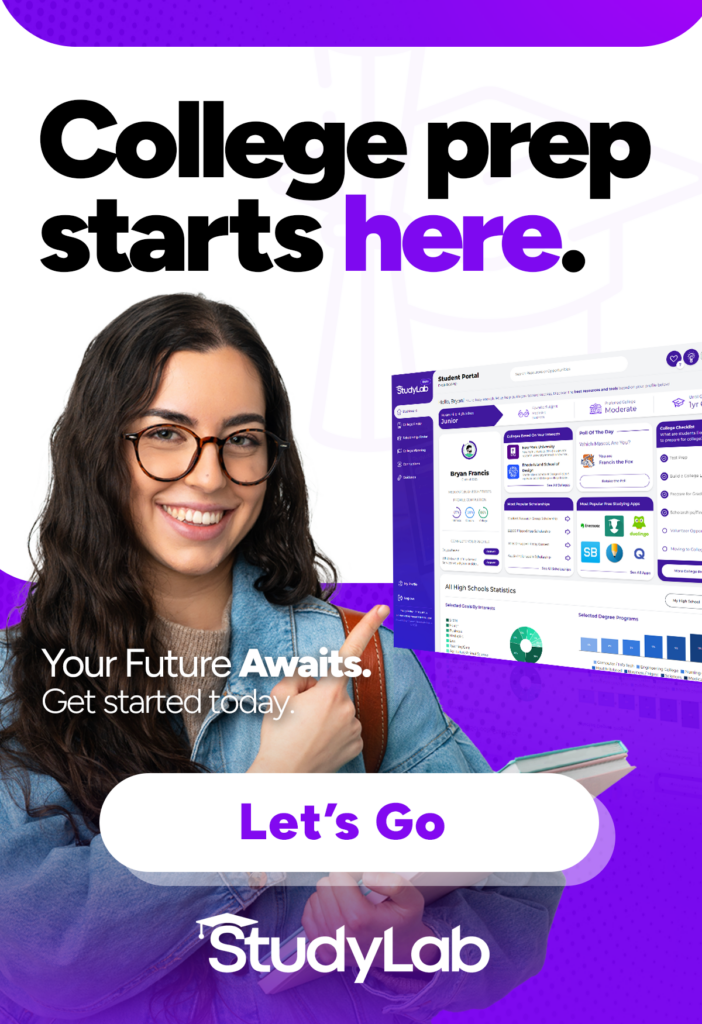Earning college credit can take some time to accumulate. Depending on your goals, what degree you want, or your grade level—it can feel like it’s taking forever to get where you want to go. To reach your goals faster, consider other college credit opportunities that are offered outside a traditional classroom.
Alternative college credit opportunities provide students with more options to get ahead in their education and can also help them be more in charge of their learning experience. Whether you are a high school student who wants to get ahead or a college student looking to graduate more quickly, check out our list of the top ten ways to earn college credit.
Benefits of Other College Credit Opportunities
There are numerous benefits to earning college credit through alternative routes, including:
- Save Money: College tuition can be expensive! There are many alternative college credit opportunities that can save students money on tuition. Depending on which opportunity you are interested in, you can save hundreds or thousands of dollars per year.
- Graduate Faster: By getting your degree and graduating faster, you can start your career journey sooner! Graduate in less time through additional college credit options.
- Test your Knowledge: Get outside of your comfort zone and put your knowledge to the test! Take classes that can challenge you and help you with your future endeavors.
- Fulfill Some General Education Requirements: The first two years of college are where students get their core gen ed classes fulfilled. By earning college credit through other opportunities, students can fulfill those class requirements so they can start taking upper-level classes that are required for their major.
- Prepare for College: For high school students or incoming college freshmen, alternative college credit opportunities can help students get familiar with college-level learning.
- Exploring Your Interests: Earn college credit and explore what you are interested in at the same time! Discovering opportunities that align with your interests can help you find out what degree you want to earn or even a possible career path.
10 Ways to Get College Credit
Whether you are a student in high school or college, there are several types of classes, enrollment options, programs, and general opportunities that allow students to earn credits. Here are 10 ways to get college credit.
How to Get College Credit in High School
- Dual Enrollment
Dual Enrollment, also known as concurrent enrollment, is one of the ways to get college credit in high school. This method allows high school students to still be enrolled in their high school while also being enrolled in courses that earn college credit. Dual enrollment is popular among high school students, with over 1.4 million students enrolled.
Depending on what state students live in, students can either do dual enrollment part-time or full-time. Every state has a different dual enrollment program, so research your state’s specific policies and procedures.
Enrolling in a dual enrollment program can benefit high school students who are eager to start earning college credit. By earning college credit before they graduate, students can begin their freshman year of college better prepared and be ahead with having already gained some college credit.
- Advanced Placement Classes (AP Classes)
Another way of getting college credit in high school is by signing up for Advanced Placement Classes, often referred to as AP classes. These advanced high school classes allow students to experience a college-level curriculum and provide the opportunity to earn college credit. To earn credit for these classes, students must take and pass the AP exams associated with the class.
AP classes are offered through College Board. Students can take whatever AP subjects their high school offers. These opportunities provide many benefits for students who are interested in exploring a college-level class. Students can stay at their high school, challenge themselves with a rigorous curriculum, and get college-ready.
- International Baccalaureate Program
For students who want even more of a challenge, the International Baccalaureate Program (IB) provides students with the opportunity to accelerate their education. This internationally recognized program is offered at select schools around the world. Colleges and universities view the IB program in high regard as it provides students with an advanced style of education.
While the IB offers various programs for age groups 3-19, the general program for high school students ages 16-19 is the Diploma Programme (DP). Over a two-year program, students take 6 classes each year which are then followed by a set of final exams where students have the chance to earn college credit.
For students interested in a specific career, the Career-related Programme (CP) allows high school students ages 16-19 the opportunity to have their education be more career-focused. During the two-year program, students take two courses from the DP, and then four courses that are career-related from the CP. Students can earn college credit if they pass the exams.
- Cambridge AICE Classes
Another accelerated program where high school students can be in control of their learning is the Cambridge Advanced International Certificate of Education (AICE) program. This international program from University of Cambridge is available in select schools, allowing students to choose courses that align with their interests and graduate high school with an AICE diploma.
For AICE, students have the option of choosing between two different levels: AS Level (where students learn subjects that are typically covered during the first year of college) and A level (where students learn more advanced subjects that typically cover the first two years of college).
After completing the courses and passing the exams, students are eligible to receive college credit that is accepted at many colleges and universities.
- Early College High Schools
Depending on where you live, early college high schools are another way to earn college credit in high school. These special types of high schools allow students to earn their diplomas in addition to an associate’s degree or some college credit. Compared to dual enrollment, early college high schools have college courses built into the high school curriculum, meaning students have a more supportive environment in one place.
Students who attend an early college high school are shown to have positive experiences and are more likely to complete college courses after high school. By attending early college high schools, students can earn credit while still being able to enjoy a high school setting.
How to Get College Credit as a College Student
- Summer Classes
The majority of students in college take the summers off from their quarter or semester class schedule. But, if students want to graduate faster and continue learning, they can enroll in a summer class to continue earning credits.
Depending on the student and what their goals are, taking classes in the summer can have numerous benefits. If a student is a freshman or sophomore, they can get their general education requirement courses completed more quickly. Students can also explore their interests by taking an elective-style class.
Most colleges offer classes in the summer that are different from those offered during the school year. Explore your college’s course selection or catalog on their website to discover what classes are available.
- Online Classes
Another great college credit option for students to know about is how to earn college credit online. Various colleges and universities offer online classes in their course catalog. And, many online college credit courses are cheaper than in-person courses.
There are a lot of benefits for students who take an online class: Students have the flexibility to learn on their own schedule, select from a large range of subjects, and learn from anywhere they are comfortable.
Additional Credit Opportunities
- College-Level Examination Program (CLEP)
Whether you are in high school or college, you can earn college credit by taking a College-Level Examination Program (CLEP) through College Board. These special exams are offered year-round and students can take these exams either at an official testing center or remotely from home.
For many students, registering for a college course can be expensive and time-consuming. By taking a CLEP exam, students can earn college credit faster and save money. CLEP exams also allow students to have flexibility by earning college credit for subjects they have already had experience with.
- College Credit for Life Experience
Students who learn outside of the classroom and have gained life experience may be able to receive college credit for their accomplishments. To earn college credit, students can take tests or assessments (like the CLEP) to assess their knowledge. Some life experience examples are professional licenses or certifications, service projects or programs, and fluently speaking a second language.
Colleges may have students complete a portfolio of experience or take tests to determine if they are eligible to receive some college credit for life experiences. Each school or testing organization distributes college credit differently. If there is a specific life experience you would like to earn college credit for, be sure to research the eligibility and requirements.
- College Credit for Work Experience
A common method of earning college credit outside of the classroom is through work experience. By doing work experience in exchange for college credit, students can apply their knowledge and gain new skills in a professional setting. It’s recommended to review a college’s policies on earning college credit from work experiences to determine eligibility.
Some examples of how to earn college credit for work experience are: completing an internship, military experience, volunteering, and community service. Another way to verify your work experience to earn college credit is by taking a workplace learning evaluation that is offered by the American Council on Education.
Planning Your Next Steps
If you are thinking about earning college credit through an alternative route, make a plan that fits your future goals. Here are some tips to help:
Determine what type of college credit
You don’t have to take all the examples listed above, but knowing more about what type of college credit opportunities are available can be helpful when deciding what path to take. Depending on your education level, you may or may not be eligible for certain types of college credit.
Know if your college credit will transfer
If you are planning on transferring schools after accumulating additional college credit elsewhere, make sure the university accepts your college credit. Depending on what college credit you are planning on earning, do some research to determine if it is transferable.
Being aware of your strengths and limits
Taking additional classes, programs, or tests to get college credit is great, but it’s also important to know your limits and avoid burnout. Every student has different strengths; knowing what yours are can help you decide which opportunity is best for you.
Interested in Earning More College Credits?
Enrolling in a few extra classes, taking an exam, or learning a new skill through work experience is a great investment in your future. Additional college credit offers several benefits like financial savings, graduating sooner, and getting a head start on their careers.
Are you interested in finding some opportunities where you can possibly earn college credit? Explore more on StudyLab by using the Volunteering section to find opportunities local to you.
Expand your skills and get familiar with college-level courses by finding courses in the Connections section on StudyLab.
Learn more about college and additional helpful resources for students in our other blog posts:


